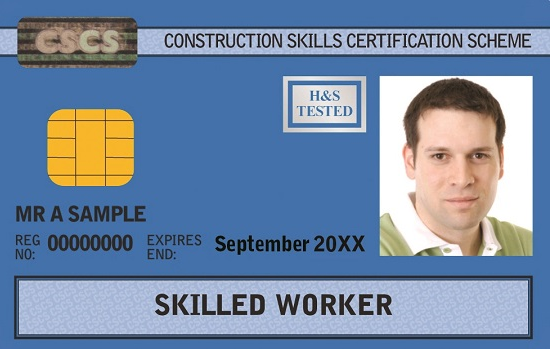
by Clair Mooney | Mar 8, 2019 | Main News Feed
IP and Brexit
Since issuing a circular on this subject on 28 February 2019, another update issued on 1 March has appeared on the GOV.UK/EUEXIT website. Please click here to view.
In addition to the above information on Intellectual Property, more specific information concerning Traded Marks was issued on 1 March 2019. Please click here to view.
• Once the UK leave the EU without a deal, EU Trade Marks (EUTMs) will no longer provide protection in the UK
• UK protection will be preserved by the government revising UK law to provide holders of existing EUTMs with a comparable UK trade mark on exit day
• From exit day, all existing registered EUTMs will be treated as if they had been applied for and registered under UK law
• For all registered EUTMs a comparable UK trade mark will be created which will be recorded on the UK register
• These UK rights will retain the filing dates recorded against the corresponding EUTMs and will also inherit any priority and/or seniority dates.
• They will be fully independent UK trade marks which can be challenged, assigned. Licensed or renewed separately from the original EUTM.
• These comparable rights will be created at no cost to the original holder of the EUTM.

by Clair Mooney | Mar 8, 2019 | Main News Feed
MHCLG has extended the deadline for responses to the Call for Evidence for Approved Document B (Fire safety) to 15 March 2019 due to some respondents being unable to submit their reply due to technical reasons. We would encourage individual members to also respond directly with your views and evidence using the attached form to ADBconsultation@communities.gsi.gov.uk
We have submitted the attached response which has been sent to The Ministry of Housing, Communities and Local Government (MHCLG).
If you have any additional points that we should consider as part of our ongoing work on this subject, please do feed them in. Also we-d be grateful if people send us any direct responses you have submitted.
Please call Joe Cilia on 07795 958 780 if you have any questions.

by Clair Mooney | Mar 8, 2019 | Main News Feed
CSCS has confirmed that the Grandfather Rights scheme will be phased out from 2020 and will be abolished completely from 2024.
The scheme – officially known as Industry Accreditation – allowed workers to obtain CSCS cards based on their industry knowledge and an employers’ recommendation rather than the achievement of a recognised qualification.
CSCS closed Industry Accreditation to new applicants in 2010 but those already holding a card are currently able to renew on the same basis.
From 1 January 2020, all cards renewed under Industry Accreditation will expire on 31 December 2024 and CSCS will stop issuing the card from 30 June 2024.
CSCS chief executive Graham Wren said: “Following the closure of the Construction Related Occupation card and the Construction Site Visitor Card, cards gained by Industry Accreditation are the only cards in the CSCS scheme which do not require the cardholder to achieve a recognised qualification.
“Industry Accreditation does not support industry’s desire for a fully qualified workforce and as such it will be withdrawn.”
What each of the 60,000 Industry Accreditation card holders need to do next depends on their occupation and any qualifications they may already hold.
Those without qualifications will be required to register for the appropriate qualification for their occupation before their cards expire in 2024.
Wren added: “A lot of work has taken place to ensure those with cards issued under Industry Accreditation will be able to transition to other CSCS cards as simply as possible.
“We are making this announcement early to ensure card holders and their employers have enough time to make the necessary alternative arrangements.”
The withdrawal of Industry Accreditation will be the final step towards achieving the Construction Leadership Council’s objective of ensuring cards are only issued to those who have achieved, or are in the process of achieving, a nationally recognised construction related qualification.
For more information click here
by Clair Mooney | Mar 8, 2019 | Main News Feed
This will come info force on 1 October 2019. Although this might seem like some time away, this change will see VAT being paid between construction firms ‘reversed charged’ which will have consequences for your cashflow and accounting systems.
We recommend members take a look at the JTC guidance and also seek advice from your accontants. The Policy Paper details the reform and details the impacts. The Government has also produced a Guidance Note.

by Clair Mooney | Mar 8, 2019 | Main News Feed
CITB has announced a major boost in funding to help employers take on construction apprentices.
From 1 April, CITB’s attendance grants to employers will increase to £2,500 per year, while achievement grants will rise to £3,500 for companies whose apprentice successfully completes their training.
This is an overall funding increase from £10,250 to £14,500 for each apprentice an employer takes on – an uplift of over 30% on existing rates.
CITB has decided to increase employer funding at a time when construction apprenticeships are falling. This is due to factors such as economic uncertainty caused by Brexit and employers adjusting to new apprenticeship reforms, including the Apprenticeship Levy.
But construction needs many more learners not only starting, but completing their apprenticeships and joining the workforce. CITB’s forecast shows the industry needs to fill some 168,500 new jobs over the next five years, and to grow much more of its own domestic workforce, given likely limits on future access to migrant workers.
Stephen Radley, CITB Director of Strategy and Policy said:
“We know that taking on an apprentice is a big investment for employers who have seen the cost of doing this go up significantly in recent years.
“These grant increases are designed to help employers of all sizes take on apprentices and ensure those learners complete their courses.
“CITB support isn’t just about money, but we believe that this major rise in grant funding will improve both apprenticeship starts and completions in our sector.”
This announcement follows extensive consultation with employers across Great Britain through discussions, online surveys and feedback from employer events.
In the coming weeks, CITB will share further measures to support apprenticeships in construction.
Sarah Garry, Skills Manager of Build UK said: “We welcome the increase in funding for apprenticeships which should make a real difference for all employers, regardless of the size of their business. This is one piece of the puzzle. CITB and industry working together will ensure the apprenticeship process is easy to understand and is accessible for everyone.”
Brian Berry, Chief Executive of the Federation of Master Builders said: “The increase in grant funding is good news for employers in the construction industry, particularly small construction firms. It will allow SME businesses to take on even more apprentices, including for specialist courses in order to meet the construction industry’s demand for highly-skilled individuals.”

by Clair Mooney | Mar 8, 2019 | Main News Feed
Skills and training funding provides an extra incentive to small employers to deliver construction training which align with CITB’s grant scheme. This funding also supports training interventions in management and leadership. Details are below. If you would like to talk this through in further detail, please contact FIS sector skills engagement manager Amanda Scott on 07900 083325 or email amandascott@thefis.org
Who can apply for funding
CITB-registered employers with up to 99 PAYE staff. Employers can apply for Skills and training funding once every 12 months.
How much you can apply for
CITB-registered employers can apply for funding related to how many direct employees they have:
- Employers with 1 to 49 PAYE staff can receive up to £5,000.
- Employers with 50 to 74 PAYE staff can receive up to £7,500.
- Employers with 75 to 99 PAYE staff can receive up to £10,000.
How to apply
To apply for skills and training funds, please read the guidance notes provided in the application form.
To complete and submit the form, you should:
- Download the application form and save it to your computer
- Complete all fields
- Ensure that you regularly save this application to your desktop to prevent loss of data
- Save and send the completed form to skills.training@citb.co.uk
Scanned copies will not be accepted.
If you have any problems with completing your application form please contact skills.training@citb.co.uk
What happens next
The funding team will examine the applications in blocks or after a defined ‘assessment point’. Please see details of when applications will be considered:
30 April 2019
31 May 2019
28 June 2019
31 July 2019
30 Aug 2019
30 Sept 2019
31 Oct 2019
29 Nov 2019
31 Jan 2020
28 Feb 2020
29 March 2019
You should receive a decision within 4 weeks after the score point following your application.





